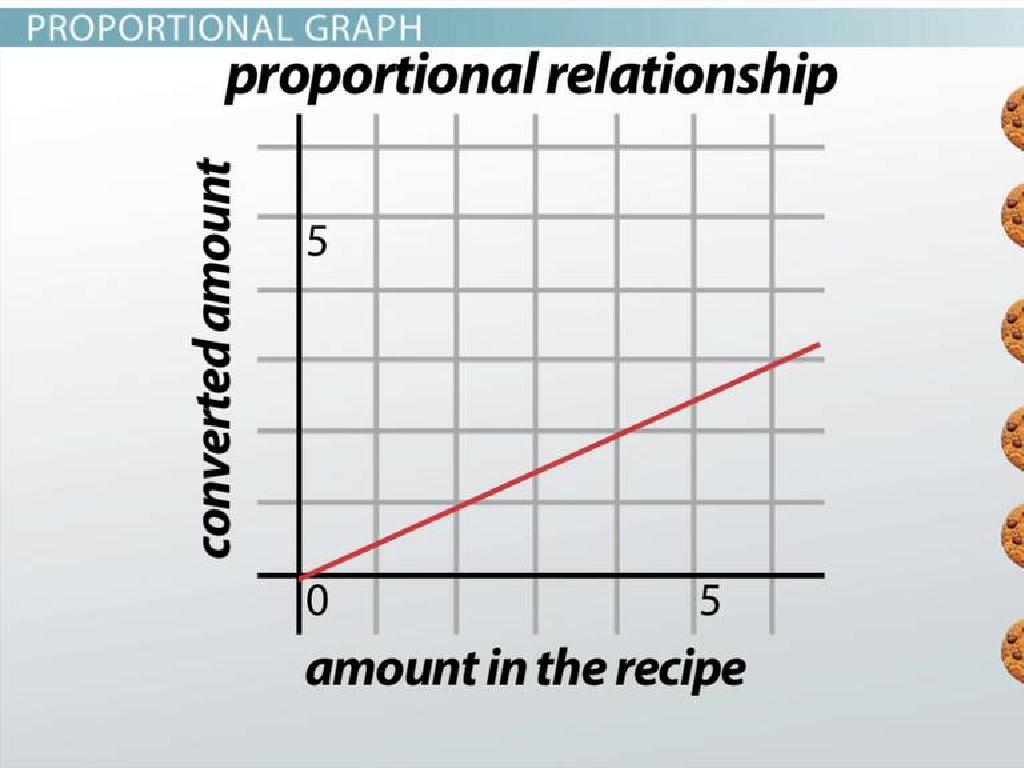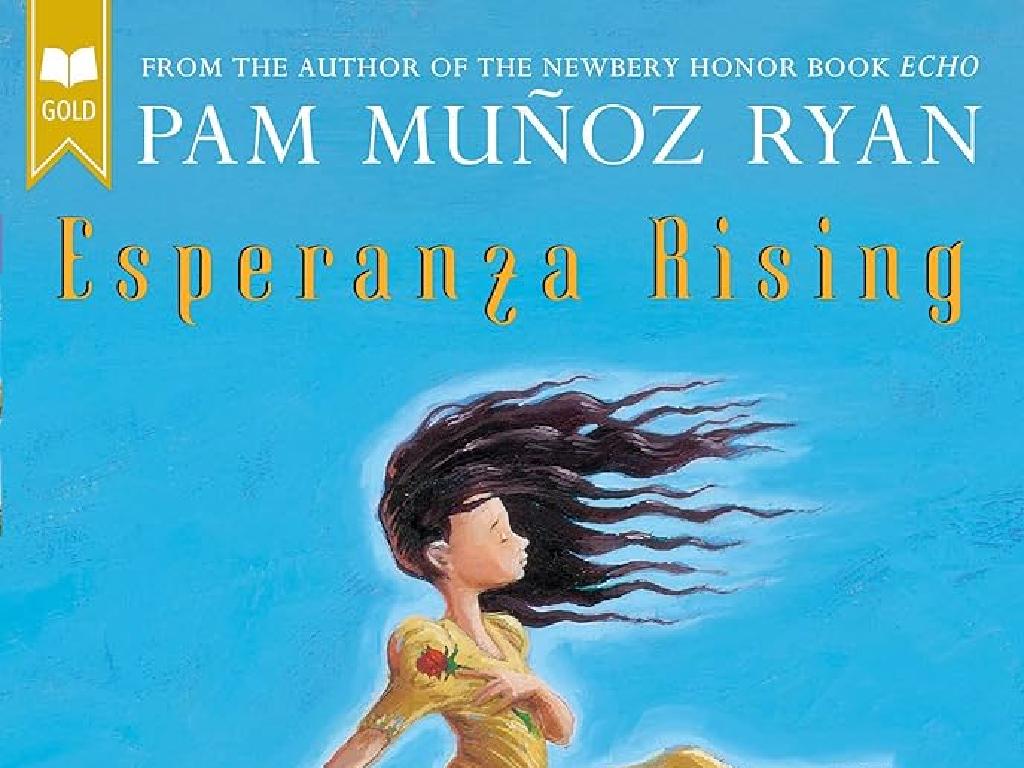Cesar Chavez
Subject: Social studies
Grade: Third grade
Topic: Historical Figures
Please LOG IN to download the presentation. Access is available to registered users only.
View More Content
Learning About Leaders: Cesar Chavez
– What is a historical figure?
– Someone who has made a big difference in history
– Cesar Chavez: A leader for farmworkers
– He fought for better pay and conditions for farmworkers
– Why we study historical figures
– To learn from their actions and impact on society
– How Chavez changed our world
– His work led to better laws protecting workers
|
This slide introduces the concept of historical figures, focusing on Cesar Chavez as an example. A historical figure is someone who has had a significant impact on the world, and we study them to understand how they shaped society and to learn from their experiences. Cesar Chavez is highlighted as an important leader who advocated for the rights of farmworkers, leading to improved working conditions and fair wages. His legacy demonstrates how one person’s efforts can lead to substantial changes in laws and society. Encourage students to think about how Chavez’s work still affects us today and to consider what qualities make someone a leader worth remembering.
Meet Cesar Chavez: A Leader for Change
– Who was Cesar Chavez?
– A civil rights activist and labor leader
– His importance in history
– Fought for farmworkers’ rights and equality
– Overview of his life
– Born in 1927, founded a labor union for farmers
– Cesar’s major achievements
– Improved conditions for farmworkers across America
|
Cesar Chavez was a notable figure in American history, particularly known for his efforts to improve the lives and working conditions of farmworkers. He was a civil rights activist and co-founded the National Farm Workers Association, which later became the United Farm Workers (UFW). Chavez’s nonviolent approach to securing contracts from grape and lettuce growers was a significant milestone in the labor movement. His dedication to his cause made him an icon of justice for the disadvantaged. This slide aims to introduce students to the basic facts of Chavez’s life and his role in fighting for labor rights. Encourage students to think about how one person can make a big difference in the lives of many and to consider the values of fairness and equality that Chavez championed.
Early Life of Cesar Chavez
– Born into a farming family
– Cesar was born in Arizona to a Mexican-American family with a farming background.
– Worked in fields as a child
– He started working in the fields at a young age, learning about agriculture and hard labor.
– Witnessed farm workers’ struggles
– Cesar saw the harsh conditions and unfair treatment that farm workers faced daily.
– Shaped his mission for justice
– These early experiences motivated Cesar to fight for better rights for farm workers.
|
Cesar Chavez was born into a Mexican-American family and grew up working on farms, which gave him firsthand experience of the challenges faced by agricultural laborers. His early life was marked by poverty and injustice, witnessing the struggles of farm workers who were often mistreated and underpaid. These formative experiences deeply influenced his views and later led him to become a civil rights activist, co-founding the National Farm Workers Association. When discussing Chavez’s early life with third graders, emphasize his background and how it inspired his lifelong commitment to improving conditions for farm workers. Use this slide to set the stage for understanding Chavez’s impact on labor rights and social justice.
Cesar Chavez’s Fight for Rights
– Chavez’s role in workers’ rights
– He worked to improve farm workers’ conditions.
– National Farm Workers Association
– Chavez co-founded this to help workers.
– Key protests and marches
– Organized marches for fair wages and conditions.
– Impact on farm workers’ lives
– His leadership led to better pay and treatment.
|
Cesar Chavez was a civil rights activist who dedicated his life to improving the working conditions and treatment of farm workers. He co-founded the National Farm Workers Association, which later became the United Farm Workers (UFW). Chavez organized several important protests and marches, such as the Delano grape strike and the long march from Delano to Sacramento, to demand fair wages and humane working conditions for farm workers. His efforts were instrumental in bringing about significant improvements in pay and labor conditions for agricultural workers. In this slide, students will learn about Chavez’s pivotal role in the farm workers’ rights movement and how his leadership led to lasting changes in the industry. Encourage students to think about how one person can make a difference in the lives of many.
The Impact of Cesar Chavez
– Improved farm workers’ rights
– Fought for better pay and conditions
– Cesar Chavez’s enduring legacy
– Remembered for his nonviolent protests
– His work’s ongoing inspiration
– Activists still follow his example
|
Cesar Chavez was a civil rights activist who made significant strides in improving labor rights for farm workers. He advocated for better pay and safer working conditions through nonviolent means such as marches, boycotts, and hunger strikes. His legacy continues to be celebrated today, particularly in the labor movement and among civil rights activists. Chavez’s dedication to social justice and his method of peaceful protest continue to inspire new generations to fight for change in their communities. When discussing Chavez’s impact, emphasize his commitment to nonviolence and the lasting changes he achieved for workers’ rights. Encourage students to think about how they can make positive changes in their own communities.
The Values of Cesar Chavez
– Embraced nonviolence
– Chavez used peaceful methods, like marches, to protest.
– Fought for worker equality
– He wanted fair treatment for all farm workers.
– Believed in community power
– Chavez knew that people are stronger together.
– Advocated peaceful protest
– Organized boycotts and strikes without violence.
|
Cesar Chavez was a leader who stood up for the rights of farm workers. He believed in nonviolence and peaceful protest, following the example of leaders like Mahatma Gandhi and Martin Luther King Jr. Chavez fought for equality and justice, ensuring that all workers were treated fairly and with respect. He also understood the power of community and solidarity, uniting workers to stand together for their rights. Through his leadership, he organized boycotts and strikes, always maintaining a peaceful approach. Teach students about the importance of these values and how they can apply them in their own lives. Discuss how Chavez’s commitment to nonviolence and justice made a significant impact on workers’ rights.
Remembering Cesar Chavez
– Learn about Cesar Chavez Day
– A special day to remember his work for farmworkers’ rights.
– Honoring Chavez’s memory
– We honor him by learning about his life and the values he fought for.
– His teachings in today’s world
– Chavez taught us about non-violence and justice for workers.
– Continuing his legacy locally
– We can help our community by volunteering and treating everyone fairly.
|
This slide is aimed at helping third-grade students understand the importance of Cesar Chavez Day and how we can honor the legacy of Cesar Chavez. Chavez was a civil rights leader who worked tirelessly to improve conditions for farmworkers. On this day, we remember his commitment to social justice and non-violent protest. Teachers should explain Chavez’s key teachings and discuss how students can apply these lessons in their own lives, such as by being kind to others, standing up for what is right, and participating in community service. Encourage students to think of ways they can make a positive impact in their community, just as Chavez did in his.
Class Activity: Honoring Cesar Chavez
– Create a ‘Thank You’ card for Chavez
– Include a drawing of Chavez or a symbol
– Draw a portrait or a peace dove, his symbol
– Write a gratitude message
– Thank him for his work and leadership
– Share your card with the class
|
This activity allows students to connect with Cesar Chavez’s legacy by creating a personal ‘Thank You’ card. It encourages creativity and reflection on the values Chavez stood for. Provide students with card materials and art supplies. Explain the significance of symbols associated with Chavez, like the peace dove. Guide them to write messages that reflect their understanding of his contributions to workers’ rights. Allow time for students to present their cards to the class, fostering public speaking skills and peer learning. Possible variations: some students can draw, others can write poems, and some can list Chavez’s achievements.






